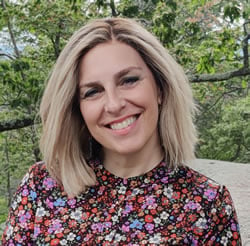Dear reader,
There is no denying that reading the news nowadays is not a happy activity. We’re inundated with tragic stories. It feels like our world is going crazy.
Several weeks ago, when I read about the ghastly butchering of fathers in prayer shawls, I went into my numb mode. It’s a mode that I noticed I’m going into more and more, kind of like an emotional dissonance. A part of me wants to just fall apart as I absorb the impact of such enormity. My rational self, though, claims that it’s impossible to feel the plight of so many widows and orphans, and it’s too overwhelming to absorb every tragedy, from babies and teens to fathers and mothers, murdered in cold blood.
And so, every time I read an article about some horror, I brace myself and monitor just how much I will let myself really feel. After all, isn’t it easier—and more productive—to shut off the emotional pain?
But then I think: isn’t that exactly what those forces of evil who wrought this tragedy want us to do? Isn’t that exactly what they do—stop themselves from being human beings and feeling the plight of another—in order to execute their insane, barbaric brutalities?
This week we celebrate Chanukah, when the forces of light and goodness won over darkness and evil. We light our menorahs to celebrate the miraculous rekindling of the Temple’s menorah.
But our Chanukah lightings differ from the Temple’s menorah. We light the menorah after nightfall as opposed to during the day, and we light it outside (or at the doors or windows of our homes) rather than within.
During Temple times, holiness was palpable. The menorah was lit during the day, but its rays reached deep into the night; it also didn’t need to leave the inner sanctum of the Temple to radiate and influence the mundane world without.
But times are different now. In the moments before dawn, the darkness is the most enveloping. We are now at the prelude to the dawn of the messianic era (which is also why we light eight candles, representing a time beyond the natural order). The darkness is all pervasive. We need to go out into the dark, out of our comfort zone—and fill it with light.
While it may be more comfortable to stay indoors, within our deceptively soothing numbness, none of us have that luxury.
We cannot fall into the trap of closing off our emotions—or our efforts—to the darkness around us. In order to change the darkness, we need to actually feel its depth. That doesn’t mean we let it paralyze or immobilize us; to the contrary, feeling another’s pain, feeling the surrounding coldness and blackness, is the only way to propel us to change it—through more effective prayers and affirmative actions.
Wishing you—and our whole world—a bright Chanukah and a new era of peace and light!
Chana Weisberg,
Editor, TJW








